How AI Enhances Influencer Marketing Strategies for Better Results
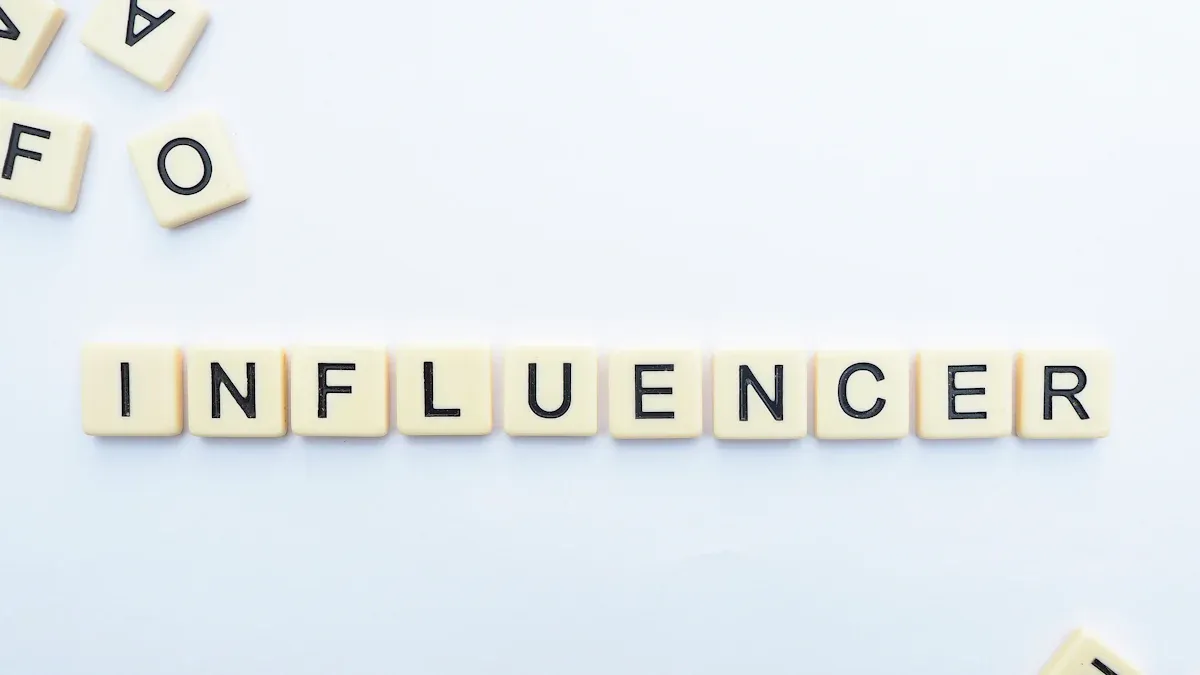
Artificial intelligence is reshaping how you approach AI Influencer Marketing, offering smarter solutions to boost your results. With tools like Lillian.ai, you can automate tedious tasks, analyze data faster, and personalize campaigns to connect with your audience more effectively. AI empowers you to identify the right influencers, craft engaging content, and optimize your marketing strategy for maximum impact. For instance, AI-driven campaigns can improve advertising efficiency by up to 30%, helping you achieve better ROI. By embracing AI Influencer Marketing, you can transform your brand strategy, strengthen your digital connection with audiences, and elevate your social media presence.
Key Takeaways
AI makes finding influencers easy by checking data for good matches. This saves time and helps build strong partnerships.
Personalization matters; AI adjusts content to fit what people like. This increases interest and makes campaigns work better.
AI tools spot fake followers to keep things real. This protects your brand and builds trust with your audience.
Predictive tools help guess how campaigns will do. This helps you plan better and use resources wisely for more success.
Using AI with human ideas creates smart and emotional campaigns. This helps connect with your audience in a real way.
The Role of AI in Influencer Marketing
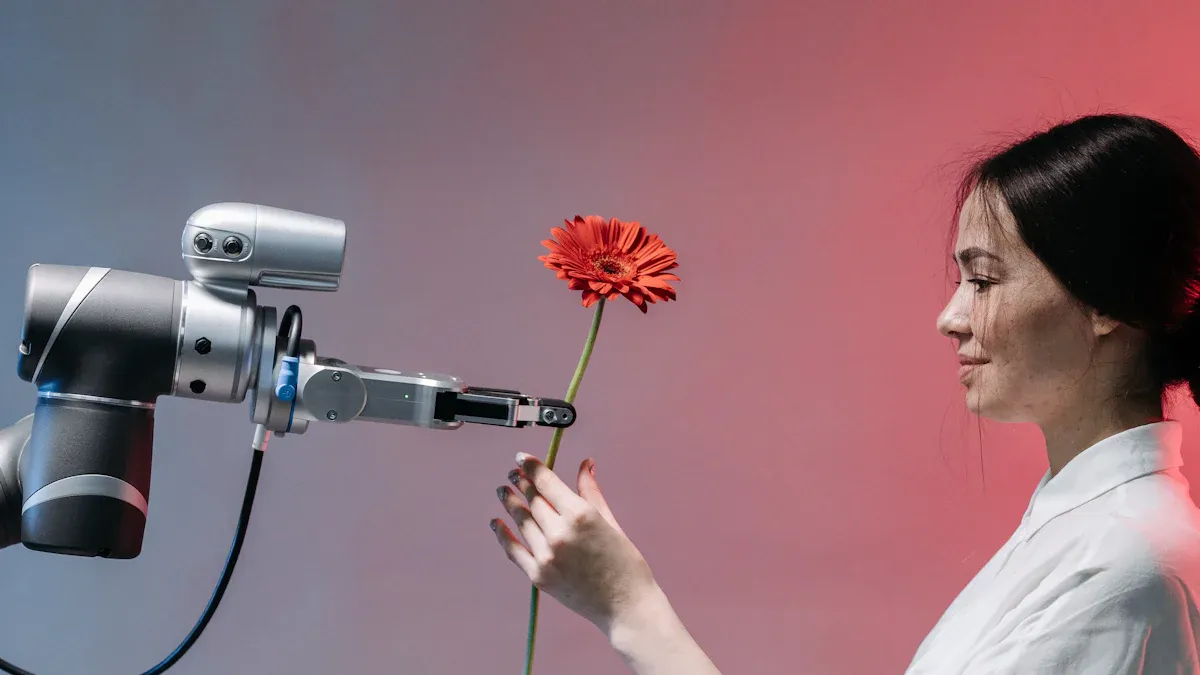
What is AI Influencer Marketing?
AI influencer marketing uses artificial intelligence to revolutionize how you connect with influencers and audiences. It leverages advanced algorithms and machine learning to analyze social media data, helping you identify the best influencers for your campaigns. By automating tasks like influencer discovery, content optimization, and performance tracking, AI saves you time and ensures your campaigns are more effective. This approach allows you to focus on building a stronger connection with your audience while AI handles the heavy lifting.
AI tools also evaluate audience engagement and predict trends, giving you the insights needed to make smarter decisions. For example, generative AI can help you craft personalized content that resonates with your target audience. With AI influencer marketing, you can create campaigns that deliver measurable results and strengthen your brand's digital presence.
Why AI is Essential in Modern Influencer Campaigns
In today’s fast-paced digital world, AI is no longer optional—it’s essential. Influencer marketing has grown more complex, with millions of influencers and endless data to analyze. AI simplifies this process by automating repetitive tasks and providing actionable insights. It ensures you choose influencers who align with your brand values and goals.
AI also helps you avoid common pitfalls like fake followers and bots. By assessing influencer authenticity, AI ensures your investment goes toward genuine engagement. Additionally, AI-powered tools optimize your campaigns in real time, improving ROI and helping you stay ahead of the competition. With AI, you can create influencer campaigns that are not only efficient but also impactful.
How AI Integrates with Influencer Marketing Platforms
AI seamlessly integrates with influencer marketing platforms to enhance their functionality. Many platforms now use AI for audience segmentation, fraud detection, and sentiment analysis. For instance, tools like Heepsy specialize in influencer discovery, while HypeAuditor focuses on verifying follower authenticity. Other platforms, such as Influencity, streamline campaign management, making it easier for you to oversee every aspect of your strategy.
These platforms also use AI to analyze content performance and recommend improvements. For example, Lillian.ai provides in-depth influencer analysis across multiple dimensions, helping you make data-driven decisions. By integrating AI into your influencer marketing efforts, you can unlock new levels of efficiency and precision, ensuring your campaigns deliver maximum impact.
Key Benefits of AI in Influencer Marketing
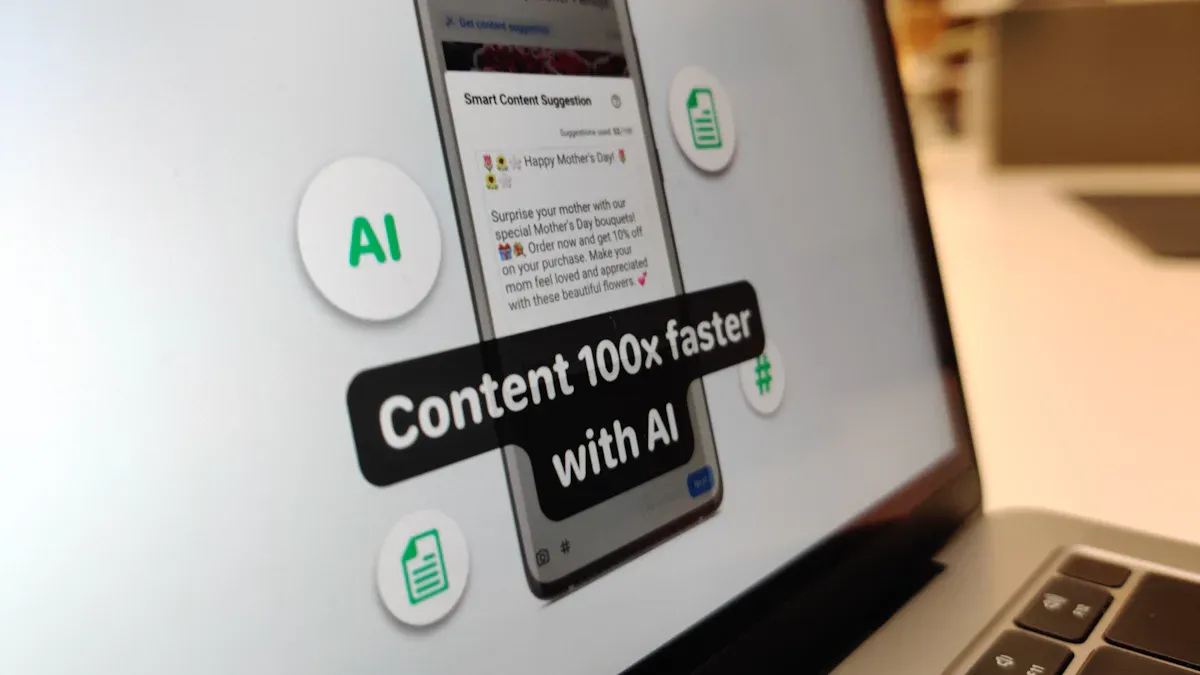
Streamlining Influencer Discovery
Identifying the Right Influencers with Data
Finding the perfect influencers for your campaigns can be overwhelming, but AI-powered influencer discovery simplifies this process. AI tools analyze vast datasets to identify influencers whose audience aligns with your brand's values and goals. By automating this process, you save time and effort while ensuring precision. For example, AI evaluates audience demographics, engagement rates, and content performance to recommend influencers who can deliver real results. This approach prevents wasted budgets on influencers with fake or low-quality audiences, which can account for up to 60% of partnership expenses. With AI, you can focus on building meaningful connections with influencers who truly resonate with your target audience.
Matching Influencers to Brand Goals
AI takes influencer discovery a step further by matching influencers to your specific marketing objectives. Intelligent algorithms analyze historical performance data, audience interests, and even relevant keywords to find influencers who align with your campaign's vision. This ensures that every partnership contributes to your brand's growth. AI also tracks campaign metrics, helping you measure success and refine your strategy. By leveraging AI solutions, you can create partnerships that drive engagement and amplify your digital presence.
Enhancing Campaign Personalization
Tailoring Content to Audience Preferences
AI influencers excel at creating personalized outreach that resonates with your audience. Advanced algorithms analyze audience behavior, interests, and demographics to help influencers craft content tailored to specific segments. This level of personalization boosts engagement and ensures your message reaches the right people. For instance, Coca-Cola used AI-driven personalization to achieve higher engagement rates across its marketing channels. By tailoring content to audience preferences, you can strengthen your connection with your followers and make your campaigns more impactful.
Optimizing Messaging for Maximum Engagement
AI continuously monitors and optimizes your campaigns in real time. It identifies the best-performing content types and adjusts messaging to maximize engagement. For example, AI-driven personalization has led to a 53% increase in open rates and a 42% rise in click-through rates for some campaigns. By using AI to refine your messaging, you can capture your audience's attention and drive meaningful interactions. This ensures that your influencer marketing efforts deliver measurable results.
Detecting and Preventing Fraud
Identifying Fake Followers and Engagement
Fraud is a significant challenge in influencer marketing, but AI offers powerful tools to combat it. AI examines follower demographics, engagement patterns, and account activity to detect fake followers and bots. For instance, it flags accounts with incomplete profiles or irregular posting frequencies, which are common signs of inauthenticity. By identifying fake engagement, AI protects your brand from wasting resources on fraudulent influencers. This ensures that your campaigns reach genuine audiences and deliver real value.
Ensuring Authenticity in Campaigns
AI helps you maintain authenticity by analyzing influencers' follower growth and engagement quality. It detects unnatural patterns, such as sudden spikes in followers, which often indicate fraudulent activity. AI-driven tools also assess the quality of interactions, ensuring that your partnerships are built on genuine connections. By collaborating with authentic influencers, you can safeguard your brand's reputation and build trust with your audience. AI ensures that every campaign reflects your brand's integrity and values.
Leveraging Predictive Analytics
Forecasting Campaign Performance
Predictive performance analytics gives you the power to anticipate how your influencer campaigns will perform. By analyzing historical data and current trends, AI influencers can forecast key metrics like engagement rates, audience reach, and conversion potential. This allows you to set realistic goals and allocate resources effectively. For example, tools like NeoReach specialize in campaign forecasting, offering an easy-to-use interface for managing large-scale influencer campaigns.
Here’s a quick comparison of predictive analytics tools you can use:
Tool | Key Features | Best For |
|---|---|---|
HypeAuditor | Fraud detection, Audience analysis | Brands worried about fake followers |
NeoReach | Campaign forecasting, Easy-to-use interface | Big influencer campaigns |
Tagger | Detailed performance insights, Campaign management | Brands wanting deep influencer data |
Brandwatch | Impact measurement, Works with other tools | Companies using multiple marketing platforms |
Influencity | Real-time reporting, Influencer relationship management | Brands new to influencer marketing |
By leveraging these tools, you can predict campaign outcomes with precision and make informed decisions that drive success.
Improving ROI with Data-Driven Decisions
Predictive analytics doesn’t just forecast results—it helps you improve ROI by identifying what works best for your campaigns. AI solutions analyze metrics like sales, engagement rates, and true reach to provide actionable insights. For instance, tracking sales through UTM links or promo codes shows the direct impact of your campaigns. AI audience analysis reveals the true reach of your influencers, ensuring your investment targets genuine audiences.
Here’s how predictive analytics enhances ROI:
Forecast campaign results to avoid overspending.
Compare costs, as influencer marketing is 10.52X cheaper than paid ads.
Set realistic goals based on past performance.
By using predictive analytics, you can refine your strategy, maximize engagement, and achieve better results. AI empowers you to make smarter, data-driven decisions that amplify your marketing efforts and boost your bottom line.
Challenges and Limitations of AI in Influencer Marketing
Maintaining Authenticity in AI-Driven Campaigns
AI has revolutionized influencer campaigns, but maintaining authenticity remains a pressing concern. When AI automates content creation or influencer selection, it risks producing generic or impersonal material. This can undermine trust and reduce engagement with your audience. Authentic content is vital for building meaningful connections, yet AI-driven processes may struggle to replicate the human touch.
Fraud detection is another challenge. While AI excels at identifying fake followers and bots, it cannot always assess the emotional depth of an influencer's connection with their audience. This gap can lead to partnerships that appear effective on paper but fail to deliver genuine results. To overcome these authenticity concerns, you must combine AI insights with human judgment. This ensures your campaigns resonate with audiences and reflect your brand's values.
Ethical Concerns in AI Usage
The rise of generative AI in influencer marketing introduces ethical dilemmas. Transparency is a major issue. Audiences may not realize when AI generates content or selects influencers, leading to potential deception. This lack of clarity can erode trust in your brand. Additionally, AI algorithms may unintentionally favor certain demographics, creating bias in influencer campaigns.
Privacy violations also pose significant risks. AI systems often rely on extensive data collection, which can raise concerns about how this information is used. Ethical implications extend to AI-driven persuasion tactics, which may manipulate audiences without their awareness. To address these challenges, you should prioritize transparency, disclose AI usage, and partner with ethical AI vendors who respect data privacy.
Overcoming Data Privacy Issues
Data privacy is a critical challenge in AI-driven influencer marketing. Compliance with regulations like GDPR and CCPA is essential to protect user information. AI systems must incorporate robust security measures to prevent data breaches. For example, anonymization technologies can transform sensitive data into anonymous datasets, safeguarding personal identifiers while retaining valuable insights.
You can also use built-in tools on social media platforms to disclose AI influence and ensure transparency. Partnering with ethical AI vendors who prioritize data protection is another effective strategy. By adopting these solutions to overcome challenges, you can build trust with your audience and ensure your influencer campaigns align with legal and ethical standards.
Balancing AI Automation with Human Creativity
AI automation has transformed influencer marketing, but human creativity remains irreplaceable. To achieve the best results, you must strike a balance between the two. AI excels at handling repetitive tasks like data analysis and audience segmentation. This allows you to focus on crafting compelling campaign strategies that resonate with your audience.
To start, use AI to define clear strategies and forecast campaign success. AI tools can analyze vast amounts of data to identify trends and predict outcomes. However, you should rely on human expertise to shape the overall vision of your campaigns. For example, while AI can suggest content ideas, you and your team should ensure the messaging feels genuine and aligns with your brand's voice.
Combining AI innovations with the creative expertise of influencers is another effective approach. Influencers bring unique perspectives and authenticity that AI cannot replicate. By listening to audience insights provided by AI, you can guide influencers to create content that feels personal and engaging. This collaboration ensures your campaigns connect with your target audience on a deeper level.
AI also enhances personalization at scale, but it’s crucial to review and adjust messaging to maintain authenticity. Overreliance on AI can lead to content that feels robotic or impersonal. Instead, use AI as a supportive tool to augment your efforts. For instance, AI can optimize content for different platforms, while you ensure it reflects the influencer's unique voice.
Finally, avoid viewing AI as a replacement for human creativity. Use it to enhance your understanding of consumer behavior and refine your strategies. By combining AI’s analytical power with your creative input, you can overcome challenges and deliver campaigns that feel both innovative and authentic.
Tip: Let AI handle the numbers while you focus on the storytelling. This partnership ensures your campaigns remain both data-driven and emotionally impactful.
Practical Applications of AI in Influencer Marketing
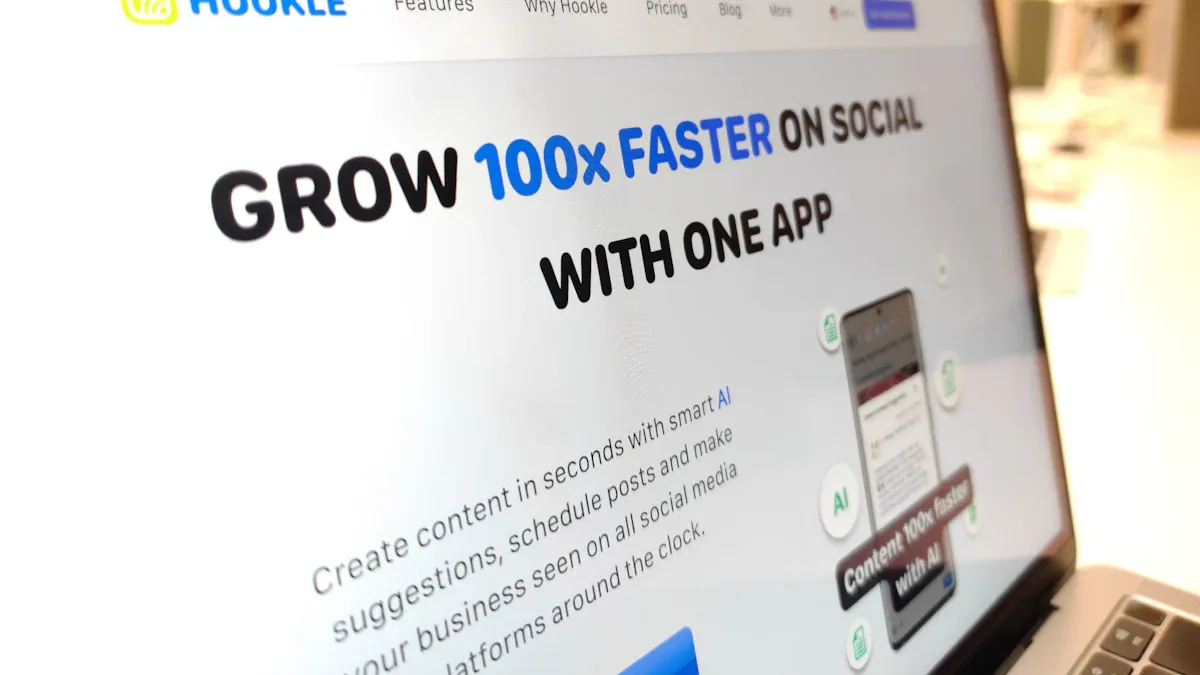
AI-Powered Tools for Influencer Marketing
Lillian.ai: A Comprehensive AI Solution
Lillian.ai is a game-changer in influencer marketing. It simplifies your workflow by managing contracts, payments, performance tracking, and content approvals. This tool ensures your campaigns are efficient and data-driven. With access to over 120 million influencer data points, Lillian.ai helps you identify the perfect influencers for your brand. It addresses one of the biggest challenges marketers face—finding the right influencers—by analyzing audience quality and detecting fraudulent accounts. This precision saves you time and ensures your influencer partnerships deliver real results.
How Lillian.ai Simplifies Influencer Analysis
Lillian.ai takes the guesswork out of influencer analysis. By processing millions of data points, it matches influencers to your campaigns based on audience demographics, engagement rates, and content performance. This AI-driven approach eliminates the need for tedious manual filtering. You can focus on crafting impactful strategies while Lillian.ai handles the heavy lifting. Its ability to identify authentic influencers ensures your campaigns resonate with genuine audiences, boosting your marketing success.
Strategies for Implementing AI Effectively
Training Teams to Use AI Tools
To maximize the benefits of AI influencers, you need a well-trained team. Start by clarifying your goals and guidelines for AI use. Train your team to integrate AI tools into existing strategies and interpret data insights effectively. Use AI-driven tools to create data-powered strategies, find the right influencers, and forecast campaign performance. This approach transforms decision-making into a precise, data-driven process, ensuring your campaigns align with market trends and audience preferences.
Combining AI Insights with Human Expertise
AI enhances your marketing efforts, but human creativity remains essential. Use AI to analyze data and predict trends, then combine these insights with your team’s expertise to craft authentic campaigns. For example, AI can suggest content ideas, but you should ensure the messaging aligns with your brand’s voice. This balance between automation and creativity allows you to build meaningful connections with your audience.
Case Studies of Successful AI-Driven Campaigns
Several brands have successfully leveraged AI in influencer marketing. Louis Vuitton created a virtual model, Lightning, to target the Asian market, showcasing the potential of AI influencers. Samsung introduced Samsung Sam, a virtual assistant that engages users on social media and provides product support. Lil Miquela, a virtual influencer, has gained widespread attention for her unique presence in the influencer space. These examples highlight how AI can revolutionize influencer partnerships and drive impactful campaigns.
Future Trends in AI and Influencer Marketing
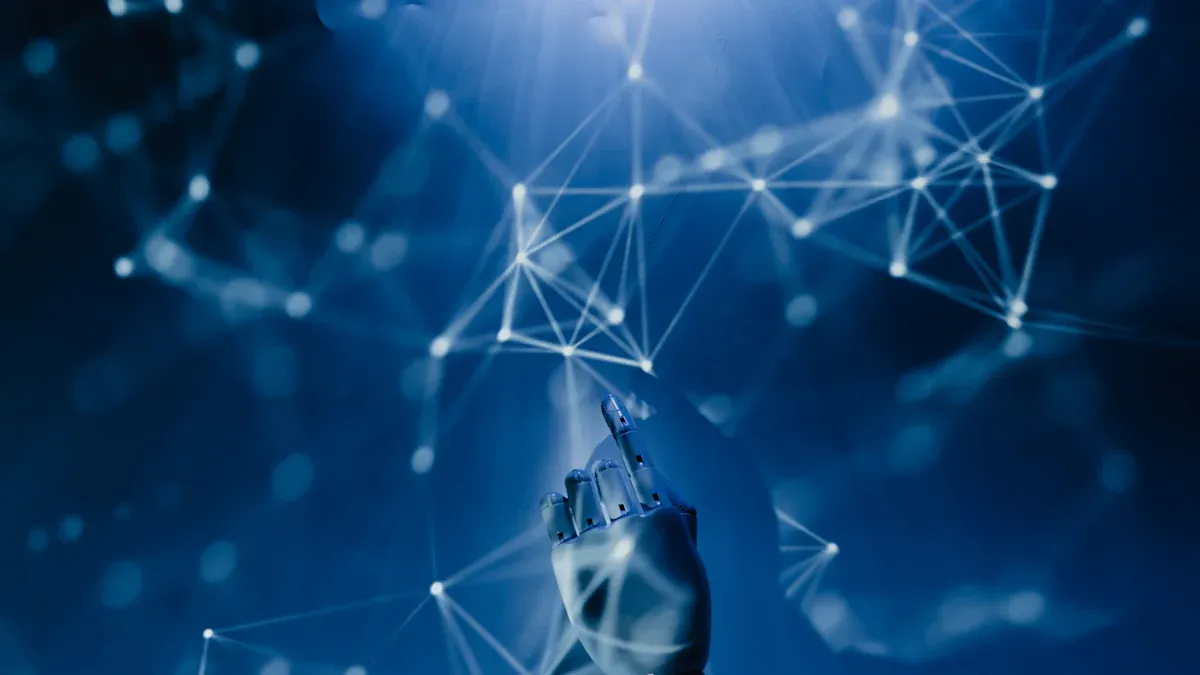
Hybrid Models Combining AI and Human Creativity
The future of influencer marketing lies in hybrid models that combine the efficiency of AI with the authenticity of human creativity. AI can handle data analysis, audience segmentation, and performance tracking, while humans bring emotional depth and storytelling to campaigns. This partnership allows you to create strategies that are both data-driven and emotionally engaging.
Brands are already exploring this approach. For example, Kellogg’s modernized its iconic Tony the Tiger mascot to interact with audiences on social media in real time. This blend of nostalgia and AI-driven interactivity shows how you can use hybrid models to enhance engagement. By combining AI insights with human expertise, you can craft campaigns that resonate deeply with your audience while maintaining efficiency.
The Rise of Virtual Influencers
Virtual influencers, created using generative AI, are reshaping the influencer landscape. These AI-generated personalities offer higher engagement rates and greater control over branding. For instance, virtual influencers boast an average engagement rate of 5.9%, compared to 1.9% for human influencers. This makes them a powerful tool for boosting your marketing efforts.
Metric | Virtual Influencers | Human Influencers |
|---|---|---|
Average Engagement Rate | 5.9% | 1.9% |
Market Value (2023) | $4.6 billion | N/A |
Projected Market Growth | 26% by 2025 | N/A |
Virtual influencers also allow you to customize characters to fit specific audience segments, enhancing personalization. With 71% of brands believing they provide a higher ROI, these AI-driven influencers are becoming a key part of marketing strategies.
Evolving AI Capabilities in Predictive Analytics
Advancements in predictive analytics are transforming how you plan and execute campaigns. AI now enables you to forecast campaign performance with precision, helping you make informed decisions. For example, a beauty brand used predictive analytics in 2023 to select influencers based on predicted engagement, resulting in a 40% increase in product sales within a month.
Without Predictive Analytics | With Predictive Analytics |
|---|---|
Guessing influencer choices | Data-driven selection |
Hoping content resonates | Predicting performance |
Unclear ROI | Forecasting results |
By leveraging predictive analytics, you can optimize your campaigns for better ROI. AI tools analyze historical data and audience behavior to predict outcomes, allowing you to allocate resources effectively. This ensures your campaigns deliver measurable results and stay ahead of market trends.
"A trackable ROI for most of our clients is traffic brought in via a UTM link or the number of times a code is redeemed." - Emily Carpenter, Digital Retail Partners
The Growing Importance of Ethical AI Practices
Ethical AI practices are essential for building trust in influencer marketing. As you integrate AI into your campaigns, you must prioritize transparency, data security, and fairness. These principles not only protect your audience but also strengthen your brand’s reputation.
To ensure ethical AI usage, you should focus on these key considerations:
Always obtain explicit opt-in consent when collecting data through polls, DMs, giveaways, or interactive stories. Include clear disclaimers to inform users about how their data will be used.
Encrypt all user and influencer data to prevent leaks or breaches. This step safeguards sensitive information and demonstrates your commitment to privacy.
Conduct regular audits to evaluate AI decisions. Compare AI’s selections with human benchmarks to ensure fairness and accuracy.
Transparency plays a critical role in ethical AI practices. A recent survey revealed that 73% of online adults who know about generative AI believe companies should disclose when they use it to interact with them. By being upfront about AI’s involvement in your campaigns, you can foster trust and credibility with your audience.
You also need to address potential biases in AI algorithms. AI systems can unintentionally favor certain demographics, leading to unfair outcomes. Regularly reviewing and refining these algorithms helps you create campaigns that are inclusive and equitable.
When you prioritize ethical AI practices, you not only comply with regulations but also build stronger connections with your audience. By protecting their data and being transparent about AI’s role, you show that your brand values integrity. This approach ensures your influencer marketing campaigns remain impactful and trustworthy.
Tip: Ethical AI isn’t just a responsibility—it’s a competitive advantage. Brands that embrace ethical practices stand out and earn lasting loyalty from their audiences.
AI is revolutionizing influencer marketing by streamlining processes, enhancing personalization, and driving better results. Nearly 49% of strategies now incorporate AI to improve efficiency and targeting, helping you identify influencers who align with your brand’s goals. Tools like Lillian.ai simplify influencer discovery and campaign optimization, saving you time and resources.
To overcome challenges like authenticity, you can use AI for insights while letting influencers maintain their unique voice. This approach ensures genuine connections with audiences. By embracing AI, you gain precision in targeting, real-time campaign optimization, and improved ROI. Stay ahead of the curve and unlock the full potential of influencer marketing with AI-powered solutions.
FAQ
How does AI improve influencer marketing ROI?
AI helps you maximize ROI by analyzing data to identify the most effective influencers and strategies. It forecasts campaign performance, optimizes content, and ensures your budget targets genuine audiences. This precision reduces waste and boosts results, making your campaigns more profitable.
Can AI detect fake influencers?
Yes! AI tools analyze follower demographics, engagement patterns, and account activity to spot fake followers and bots. This ensures your campaigns connect with real audiences, protecting your brand from fraudulent partnerships and wasted resources.
Is AI difficult to integrate into existing marketing strategies?
Not at all. AI-powered tools like Lillian.ai are user-friendly and designed to fit seamlessly into your workflow. They automate repetitive tasks, provide actionable insights, and enhance your strategies without requiring extensive technical expertise.
What makes AI personalization so effective?
AI analyzes audience behavior, preferences, and demographics to tailor content that resonates. This level of personalization boosts engagement and strengthens your connection with your audience, ensuring your campaigns deliver impactful results.
Are virtual influencers a good investment?
Absolutely! Virtual influencers offer higher engagement rates and complete control over branding. They eliminate risks like scandals and provide consistent performance. With their growing popularity, they’re a powerful tool to elevate your marketing strategy.
Tip: Start exploring AI tools today to stay ahead in influencer marketing. Solutions like Lillian.ai simplify the process and deliver measurable results.
See Also
Smart Approaches To Enhance Influencer Marketing ROI In 2025
Reliable Methods To Increase Influencer Marketing ROI In 2025
Essential Advice To Improve Influencer Marketing ROI In 2025
Crucial Indicators To Monitor Influencer Marketing ROI In 2025
